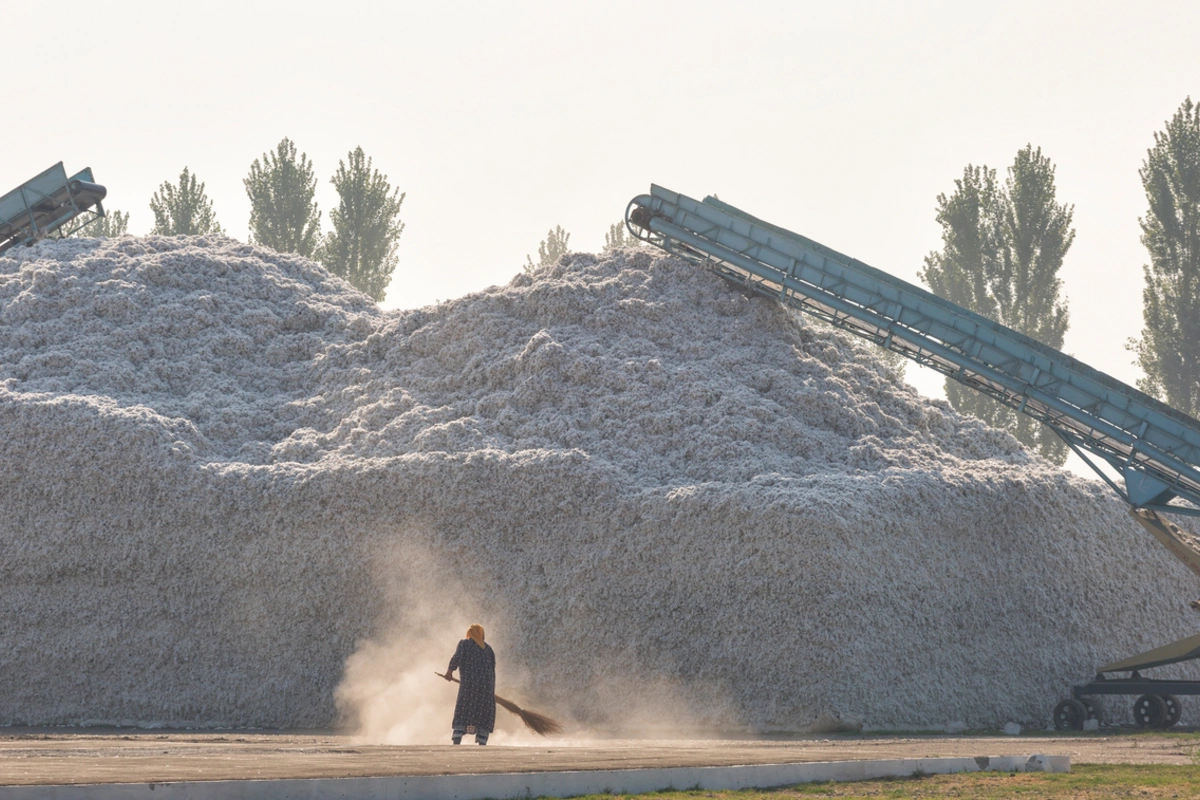
The latest report on cotton harvesting reveals that the authorities in Uzbekistan allegedly forced pickers to fulfill production targets set by the government, putting at risk the return of forced labour in the country.
Image: Shchipkova Elena/Shutterstock
At the beginning of February, the Uzbek Forum for Human Rights published its annual report on Uzbekistan’s 2023 cotton harvest. The report revealed that although “there was no widespread, systematic, government-imposed forced labour,” in the districts with a shortage of voluntary pickers, officials resorted to coercion to fulfill production targets.
Although the cotton sector in Uzbekistan is privatized, it is still state-controlled. Uzbek Forum has expressed concerns that this may lead to the potential threat of the return of forced labour in Uzbekistan, as the government puts “enormous pressure on regional officials to meet production targets,” which in turn leads to “orders to forcibly mobilize cotton pickers.”
In 2022, the Cotton Campaign ended its boycott of cotton from Uzbekistan after Uzbek Forum’s 2021 cotton harvest report revealed that no state-imposed forced labour was found. The boycott was launched in 2010 by the Company Pledge Against Forced Labor in the Cotton Sector of Uzbekistan in response to the Uzbek government “forcing over 1 million children and adults, including medical staff, public sector employees and students, to pick cotton every year during the harvest.”
However, those were the days of Islam Karimov’s regime. Following his death in 2016, his successor and the current president of Uzbekistan, Shavkat Mirziyoyev, was committed to “eradicate child and forced labour, which he once personally oversaw as prime minister under Karimov for 13 years”, The Diplomat reports. By implementing reforms, Mirziyoyev was set to demonstrate to the public at home and abroad that he was determined to change Uzbekistan and its public image.
Unfortunately, it wasn’t enough. Uzbek Forum further reports that “the Uzbek government continued to obstruct or close down cotton cooperatives in violation of the right to freedom of association.” The independent cotton cooperatives could help farmers avoid exploitation by the government-controlled clusters and sell cotton on the free market on their own terms and conditions.
When liquidating the cooperatives, the Agro-Inspectorate references Presidential Decree No. 4633, implying that, according to it, creating cooperatives in districts with an already established cotton-textile cluster is not permitted. However, Uzbek Forum debunks this, saying, “Neither Presidential Decree 4633 nor the Law on Cooperation explicitly prohibits cooperatives from operating alongside clusters in the same district.” Moreover, it argues, a new decree signed by the President of Uzbekistan on 12 December 2023, allows farmers, who grow cotton at their own expense, to sell “raw cotton and the products obtained from it, such as fibre, seeds, and lint, on the stock exchange.”
Despite the significant progress made by the Uzbek government, the Uzbek Forum is alarmed about the possibility of backsliding. To avoid that, the government must give more autonomy to the farmers and ease their grip on government-set cotton quotas, which lead to pressure on the officials, who in turn may turn to forced labour in fear of being penalized by their superiors. This chain of events further limits farmers’ ability to employ pickers and pay them sufficient wages.
Finally, the farmers and pickers need to be able to organize their independent trade unions, NGOs, and associations to be able to speak out against any rights violations, as well as determine cotton prices without the involvement of clusters. Until these steps are taken, the Uzbek government is endangering its international reputation by risking returning to the days before Mirziyoyev’s reforms and failing to ensure the rule of law and human rights for cotton farmers and pickers.
Share on social media